Vietnam, a land of stunning landscapes, bustling cities, and rich culture, invites travelers from around the globe to discover its treasures. Renting a car is a popular choice, offering an easy way to explore, whether you’re winding through the lush green rice paddies or navigating the vibrant streets of Hanoi. With two primary options available self-drive and car rentals with a driver the choice depends on your preferences and comfort with local conditions. With either option, car rental in Vietnam promises an adventure packed with possibilities, allowing you to mold your journey according to your needs and desires.
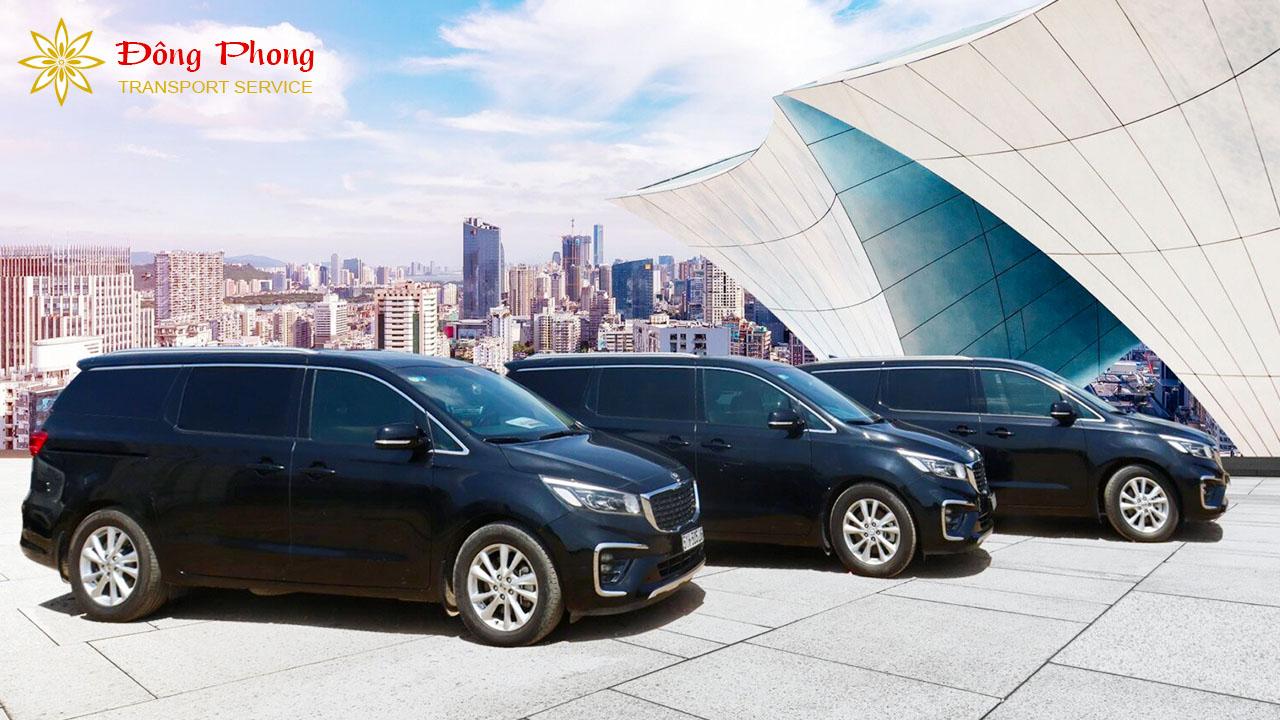
Types of car rental Vietnam
Understanding the types of car rentals in Vietnam helps you tailor your travel plans to suit your itinerary and comfort level. Self-drive car rentals offer complete freedom, ideal for those confident in their driving skills and eager to explore at their own pace. Alternatively, hiring a car with a driver provides convenience and local insights, allowing you to focus on the scenic journey. Here’s a closer look at these two prevalent car rental options.
Self-drive car rental
For the adventurous spirit, a self-drive car rental in Vietnam offers the ultimate freedom to explore the country at your own speed and leisure. It’s akin to painting your adventure on the backdrop of Vietnam’s stunning landscapes each choice in direction becomes a stroke of personal expression. However, like artists who need the right brush, travelers need to carefully select their car to match the journey’s demands. From compact cars for urban explorations to powerful SUVs for rugged terrains, the selection is as vibrant as the journey itself.

Self-driving allows flexibility unparalleled by other transport means. Want to linger by a tranquil lake or detour to a quaint village off the beaten path? You can. But with this freedom comes responsibility and, at times, the challenge of navigating Vietnam’s bustling roads. Understanding the local traffic dynamics, which differ greatly from Western standards, is crucial. The roads here tell their own tales, bustling with life and vibrancy, an orchestrated chaos that fascinates more than it frustrates.
Key considerations for self-drive:
- Vehicle Options: Typically range from compact cars to SUVs.
- Rental Cost: Approximately 500,000 to 1,000,000 VND per day.
- License Requirements: International Driving Permit converted to a Vietnamese license.
Moreover, renting a self-drive car demands adherence to Vietnamese legalities concerning driving licenses and vehicle operation. Possessing an International Driving Permit (IDP) is essential, coupled with local conversion if planning on staying longer. While this may seem like an extra layer of bureaucracy, it ensures that you’re always driving within the lines of legality and safety.
Car rental with driver
Opting for a car rental with a driver can transform a simple transfer into a cultural immersion. Imagine having a chauffeur who doesn’t just steer through Vietnam’s lively streets but also acts as a translator and guide, sharing insights that could enrich your journey in unexpected ways. This service is perfect for those seeking ease and luxury, without the stress of navigating unfamiliar roads or contending with local driving laws.
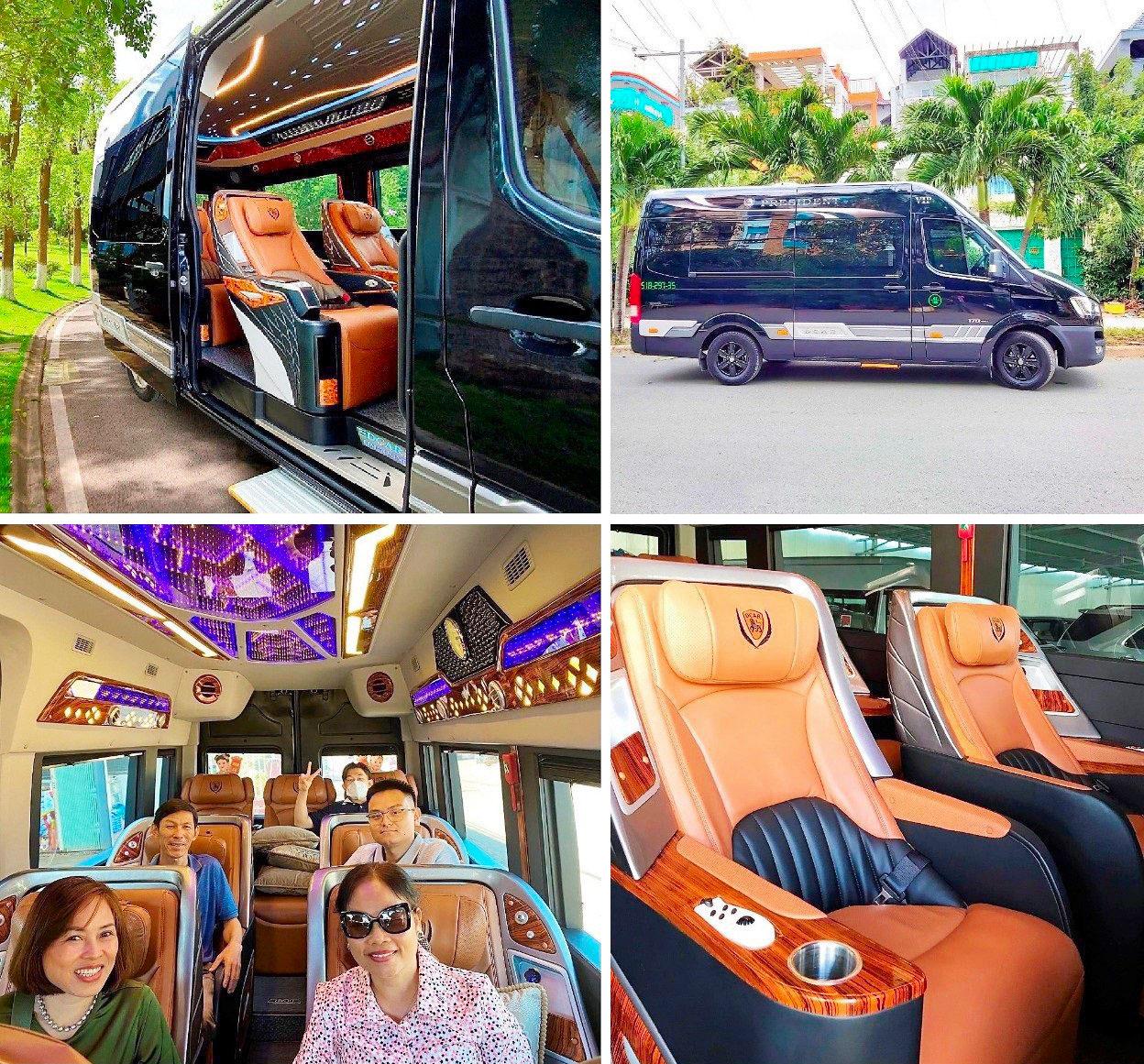
The appeal of hiring cars with drivers in Vietnam extends beyond mere comfort or convenience. It’s about having the time to focus on the scenery outside the window, the rhythmic rise and fall of mountains, the patchwork of rice fields, and the hum of city life. It offers a unique blend of privacy and insight; a way to experience Vietnam as it unfolds, told through the eyes of someone who calls it home.
Advantages of hiring a driver:
- Safety and Relaxation: Letting someone else handle traffic increases relaxation and safety.
- Local Insights: Drivers often share valuable information about destinations that you might otherwise overlook.
- Inclusive Costs: Rental packages often include fuel and tolls, simplifying budgeting.
Furthermore, hiring a car with a driver is often more inclusive in terms of costs, with packages that cover tolls, fuel, and sometimes admission to attractions. Prices here fluctuate between 1,700,000 and 2,300,000 VND per day depending on vehicle type and service levels, an investment worth considering for peace of mind and enriched travel experience.
Car rental costs in Vietnam
When assessing car rental costs in Vietnam, potential renters should consider both the type of rental self-drive or with a driver and additional expenses like fuel and insurance. Each option, while distinct in its initial cost outlay, attracts unique additional expenses that can significantly alter the total budget required. Here’s a breakdown of what to expect and consider in terms of pricing.

Average daily rental prices
The daily cost of renting a car in Vietnam varies based on factors such as vehicle type and rental conditions. For those looking to save on travel expenses, choosing the right car category can make a significant difference. Economy cars, ideal for urban ventures and short commutes, typically come at a lower price, while larger vehicles like MPVs and SUVs offer more comfort but at a higher cost.
Prices break down approximately as follows:
- Economy Cars: $25 to $50 USD per day
- MPVs: $40 to $80 USD per day
- SUVs: $50 to $100 USD per day
- 16-Seater Vans: $60 to $100 USD per day
- Luxury Cars: Varies by brand and model
Luxury vehicle rentals showcase Vietnam’s burgeoning market for high-end transport, serving those who prioritize comfort and prestige above all else. The variance in price reflects the wide range of available brands from local favorites to internationally acclaimed names.
Beyond the inherent cost of the vehicle rental, it’s important to think long-term. How many days will you need the car? Are there any special occasions or areas that require a certain type of vehicle? Addressing these questions early will ensure that you plan within a realistic budget without compromising on the travel experience.
Additional expenses: fuel and insurance
Fuel and insurance are two vital expenses to consider when renting a car in Vietnam, often seen as the invisible strings that can stretch your budget if not closely monitored. Gasoline prices in Vietnam hover around $1 to $1.50 per liter, with total fuel charges potentially adding $15 to $50 per week depending upon vehicle efficiency and distance covered. Planning your routes and travel distances efficiently can therefore save a significant amount.
Additional Costs:
- Fuel: $1 to $1.50 per liter
- Basic Insurance: Often included, but additional coverage is advisable
- Additional Insurance Costs: $10 to $25 per day for supplemental protection
Insurance, meanwhile, is a layer of protective assurance often wise to invest in. Most rental agreements include basic insurance, covering minimal damage or third-party injuries. However, opting for additional coverage, like collision damage waivers or personal accident insurance, helps in mitigating potential losses and damages particularly if you’re renter of higher-value vehicles.
These additional expenses though not immediately apparent when looking at the base rental cost must be factored into your travel budget, ensuring no surprises. Understanding these costs in advance allows for better financial planning and a more seamless travel experience throughout Vietnam.
Requirements for renting a car in Vietnam
Renting a car in Vietnam isn’t just about selecting your ideal vehicle; it’s about understanding the documentation and requirements that can differ significantly from Western norms. Knowing what’s needed in terms of documents, age, and experience ensures a hassle-free experience once you hit the roads. Here’s an outline of what to prepare and expect.
Driver’s license and international driving permit
To legally operate a rented vehicle in Vietnam, a valid driver’s license coupled with an International Driving Permit (IDP) is essential. This requirement forms the backbone of your eligibility to drive, helping rental agencies like Avis and Hertz assess suitability. The IDP acts as an international translation of your local license, and occasionally, converting this IDP into a Vietnamese license is necessary, depending on the duration of stay.

However, securing such documentation is only the first step. Understanding its application and ensuring compliance with all vehicle rules comes next. This process often involves gathering:
- Certified Copy of IDP: Keeps your documents in line with Vietnamese regulations.
- Passport: Serves for identification and verification purposes.
- Visa or Stay Documents: Shows legal stay intentions.
Converting the IDP conventionally means translating it into Vietnamese and applying to local authorities a step many short-trip travelers might overlook. But ensuring these documents are in place not only avoids legal issues but also brings peace of mind. Preparedness here reflects the broader balance sought in successful travel: freedom partnered with responsibility.
Age restrictions for car rentals
Age restrictions in Vietnam’s car rental market are as vital to understand as mileage limits or fuel policies. Generally, the minimum age to rent a car is set at 21 years, although some companies, particularly premium brands, extend this to 23 or 25. This restriction reflects liability frameworks, preventing those inexperienced from handling vehicles beyond their capability or comfort.
Companies like Budget and Europcar sometimes apply a young driver surcharge for renters under 25, mainly with luxury cars like BMWs or Audis. It’s a nod to combined risk assessment and market experience, translating to additional fees payable on top of existing agreement costs.
Age-related Requirements:
- Minimum Age: Typically 21, ranges by company.
- Young Driver Surcharge: Often applies to those under 25.
- Credit Card Requirement: To cover possible rental deposits and fees.
Securing a rental goes beyond the numeric age requirement. Many companies request renters have at least a year’s experience driving with a Category B1 driving license. Add a registered credit card to cover deposits or unforeseen charges, and you meet the base rental criteria.
Overall, understanding these frameworks ensures compliance and clarity, ultimately aiding in a more enriched and liberating experience on Vietnam’s diverse roads.
Major car rental companies in Vietnam
The Vietnamese car rental landscape is a blend of major international brands and reliable local agencies, each offering unique features. Understanding these providers empowers travelers to make informed decisions based on personal preferences, whether leaning towards renowned global service standards or seeking tailored local experiences. Here’s a look at the key players in this vibrant industry.
International car rental brands
International brands like Enterprise Holdings, Avis Budget Group, and The Hertz Corporation dominate the market with their extensive reach and reliable service. Enterprise, a global leader, brings their experience by catering to both business and leisure travelers, offering a comprehensive fleet that includes economy cars to luxury options. Avis Budget Group, with its versatile presence across Ho Chi Minh City, Hanoi, and Da Nang, ensures convenience and quality through a range of vehicles suited to Vietnam’s varied terrains.

Each brand serves a niche, with Hertz providing tailored experiences through customer-oriented packages. Their focus on reliability is reflected in repeat rentals by expatriates and frequent visitors. International companies thrive on maintaining high standards of safety and comfort, constantly innovating with technology adoptions to enhance customer satisfaction elements particularly critical in Vietnam’s rapidly changing travel landscape.
Key International Players:
- Enterprise Holdings: Known for variety and availability.
- Avis Budget Group: Offers diverse selection and widespread service.
- Hertz Corporation: Renowned for customer-oriented packages.
These brands, familiar to many Western travelers, bring comfort through stable practices and greater security in service expectations. However, balancing this with local flavors offered by native agencies creates a dynamic blend of travel experience options.
Local car rental agencies
Vietnam’s local rental agencies, such as Mai Linh Group, Vinasun Corp, and Đông Phong Transport, provide seasoned insights and local expertise unmatched by international brands. Known for their homegrown service ethos, these agencies command respect and trust among local and international travelers alike. Their diverse fleet and tailored approach offer flexibility for every kind of traveler.
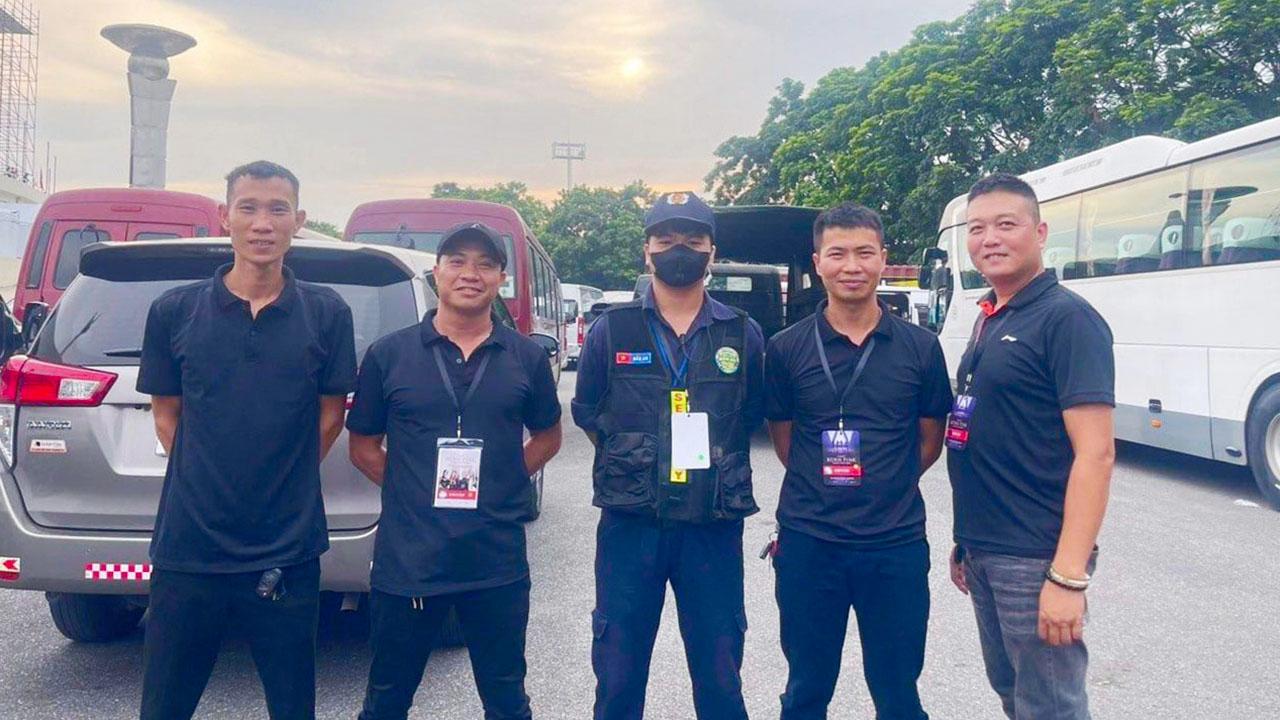
Mai Linh Group, famed for both rental and taxi services, prioritizes customer satisfaction and safety, standing as a pillar in local transport services. Vinasun Corp, primarily known for its prominent taxi service, extends its reputable operations into car rentals providing options that go beyond just price, focusing on a seamless travel experience.
Local Notables:
- Mai Linh Group: Large fleet and reputed customer service.
- Vinasun Corp: Offers intuitive rental packages and efficient service.
- Đông Phong Transport: Provides varied fleet with tailored services for all needs.
In choosing between local expertise and international reliability, personal preference and requirement dictate route selection. Whether it’s navigating vibrant cityscapes or serene countrysides, your chosen agency should align with your travel aspirations.
Benefits of renting a car in Vietnam
Choosing to rent a car in Vietnam offers undeniable advantages, enabling travelers to craft their own journeys through the country’s enchanting landscapes. This flexibility extends beyond logistics, encompassing the broader spectrum of spontaneity and exploration, two quintessential rewards in the adventure of travel. Here’s how these benefits unfold practically.
Flexibility and freedom of travel
The essence of renting a car in Vietnam lies in the unparalleled flexibility and freedom it grants travelers. Imagine setting your schedule, pausing to explore vibrant markets or snapping photos of picturesque landscapes without the constraining limits of public transport. This level of freedom enhances the travel experience, allowing adjustments on the go and creating a personalized journey canvas.

Whether it’s lingering longer at the terraced rice fields of Sapa or making an impromptu beach stop along the central coast, renting a car becomes the gateway to spontaneous discoveries a poetic dance between destination and journey.
Benefits of Flexibility:
- Personalized Itineraries: Set your path according to your interests and pace.
- Comfort and Convenience: Ideal for families or large groups traveling together.
- Time Efficiency: Spend more time enjoying attractions rather than coordinating public transit.
Furthermore, car rentals eliminate the need to adhere to rigid transport schedules, translating to more quality time spent at attractions or events. This freedom is particularly advantageous for families or groups, removing the logistical complexities often faced with public transport and enhancing overall satisfaction.
Exploring off-the-beaten-path locations
Adventure seekers often find joy off the well-trodden paths, delving into Vietnam’s numerous hidden gems. Renting a car can make these ambitious explorations possible. With the personal liberty of a rental car, you can venture into places that travel brochures don’t cover, where the serenity and authenticity of Vietnam await.
From mystical landscapes in Phong Nha-Ke Bang National Park to the serene beauty of Mu Cang Chai’s terraced fields, renting a car allows deeper immersion into Vietnam’s diverse environments. These drives turn journeys into memories, with each road less traveled imparting a unique story.
Off-the-Beaten-Path Destinations:
- Phong Nha-Ke Bang: Explore caves up close, not relying on tour schedules.
- Mu Cang Chai: Witness the stunning rice terraces at your own pace.
- Ha Giang Loop: Discover scenic routes through mountain landscapes.
While reaching these remote areas by organized tours is possible, doing so with a personal vehicle often offers reduced costs and customization a notable benefit for the independent traveler. Whether it’s about capturing the raw beauty of Vietnam in photographs or simply basking in solitude, vehicle freedom enables off-road adventures unattainable otherwise.
Challenges of renting a car in Vietnam
Renting a car in Vietnam is not without its share of challenges, primarily centered on navigating local roads and understanding native driving laws. While the allure of self-discovery and freedom beckons, these obstacles require careful consideration and preparation. Here’s a detailed look.
Navigating traffic conditions
Vietnam’s traffic conditions can be a conundrum for Western drivers, where the rules of engagement differ considerably. The roads teem with motorbikes, buses, and an unwritten local language of honks that signal intentions. Understanding and adapting to this environment is crucial for safety and enjoyment.
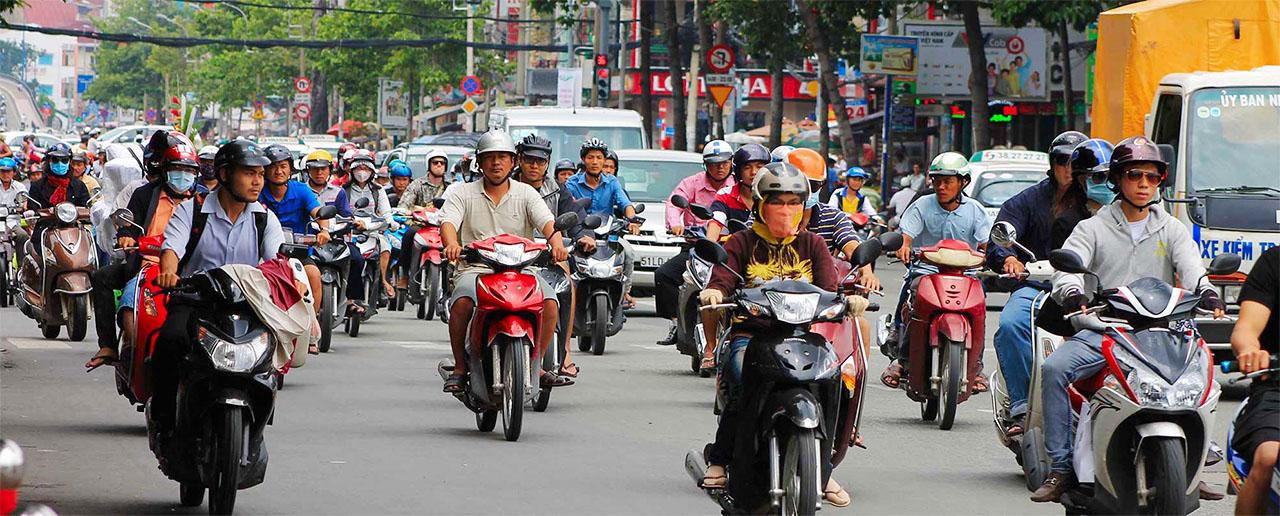
Chaotic but strangely synchronized, Vietnam’s traffic embodies an unspoken rhythm a dance of vehicles that observers might deem chaotic but drivers come to see as art. For those behind the wheel, navigating these roads can be both a thrilling challenge and a necessary cultural lesson.
Traffic Challenges:
- High Volume of Motorbikes: Adapting to the dense and bustling motorbike traffic.
- Minimal Adherence to Rules: Embracing the organized chaos.
- Unfamiliar Road Etiquette: Learning the local driving ‘language.’
Successfully navigating these conditions requires patience and an ability to adapt to fluid, dynamic traffic systems. For the uninitiated, considering a rental with a professional local driver can ease the stress, turning challenges into a learning opportunity rather than a hindrance.
Understanding local driving laws
Understanding local driving laws in Vietnam is crucial yet often overlooked by foreign drivers. The country has specific regulations, such as zero tolerance for alcohol and compulsory helmet laws for two-wheeler riders, that must be strictly adhered to. Awareness and compliance with these laws not only ensure safety but also smooth and uninterrupted travel.
Being cognizant of local traffic nuances such as yielding to larger vehicles and understanding right-of-way defaults is equally vital. Simply ignoring Vietnam’s laws can lead to fines or severe penalties, which rental agencies are likely to enforce directly.
Key Legal Requirements:
- International Driving Permit Needed: For driving legally as a foreigner.
- Traffic Rules Compliance: Awareness of local laws and etiquette.
- Right-Of-Way Nuances: Different from Western conventions.
Being alert to the requirements of Vietnam’s driving culture adds to travel confidence, preventing any undue stress or unintended breaches. Whether converting an IDP to a local license, ensuring all documentation is correct, or brushing up on local traffic nuances, these considerations underline the importance of informed preparation.
Tips for renting a car in Vietnam
While challenges exist, careful planning and understanding of rental processes can ensure a smooth car rental experience in Vietnam. Choosing a reliable rental agency and preparing all necessary documentation in advance are foundational steps that prevent issues and enhance the overall journey.
How to choose a reliable rental agency
Selecting the right rental agency in Vietnam acts as the anchor for a positive car rental experience. Begin by researching potential agencies, analyzing reviews, ratings, and client testimonials available through platforms like TripAdvisor or Google Reviews. This insight sheds light on perceived reliability, service quality, and vehicle conditions.
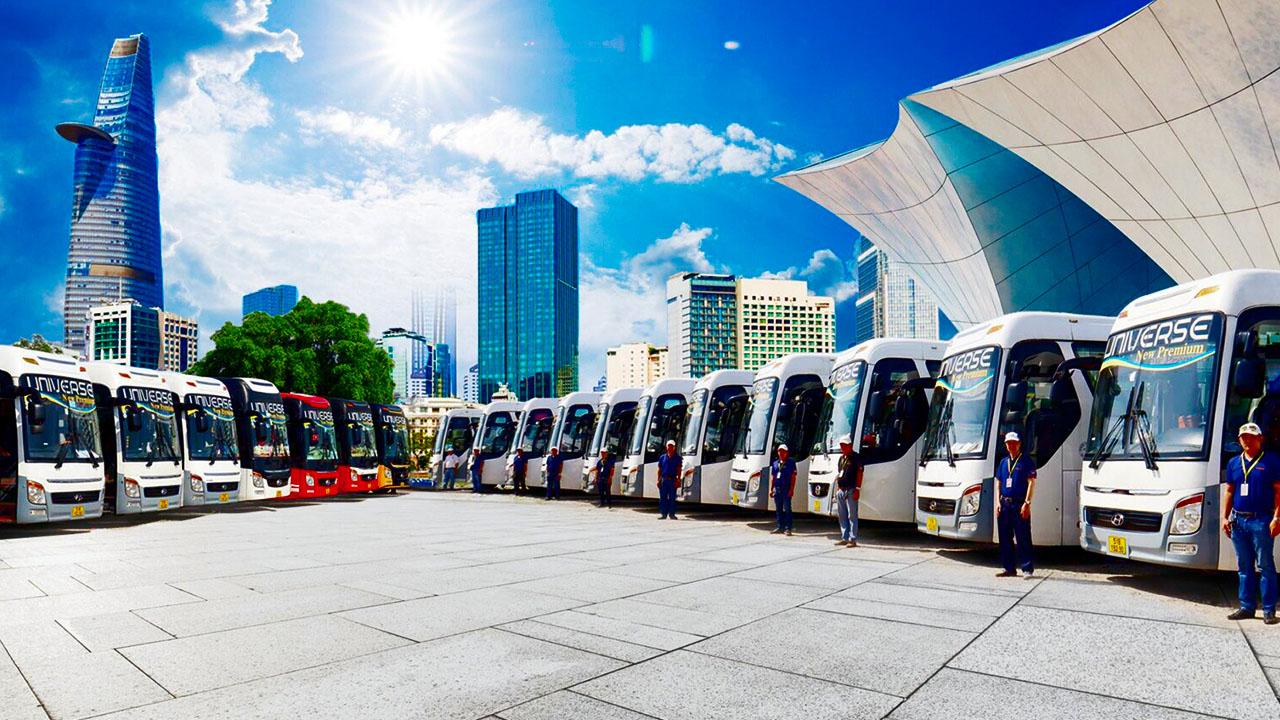
Comparing rates is next, ensuring you don’t overlook hidden fees or essential services like insurance and roadside assistance. While cost comparison is vital, quality should never be compromised for a slightly lower price focus should remain on the entire package offered.
Selecting Criteria:
- Research and Reviews: Utilize TripAdvisor, Google Reviews for insights.
- Price Comparison: Assess rates alongside services offered.
- License and Accreditation: Validate agency legitimacy and professionalism.
Additionally, rental agreements must be read and understood fully, checking for conditions like mileage limitations or fuel policies. Carefully documenting and inspecting the vehicle ensures no unpleasant surprises upon return, setting a clear record of pre-existing vehicle conditions beforehand.
Essential documents required for rental
Appropriate documents streamline the rental process, providing agencies proof of eligibility and ensuring legal compliance with local regulations. Among these, valid identification is primary with a passport typically necessary alongside a legal driving license.
For foreigners, presenting an International Driving Permit (IDP) or a converted Vietnamese equivalent is non-negotiable, matching the local standards expected by authorities. Some agencies go beyond basics, demanding passport-sized photographs or proof of accommodation to bolster identity verification.
Documentary Requirements:
- Passport and Visa: Identification and verification.
- International Driving Permit: Vital for legal compliance.
- Proof of Stay: Sometimes required for added verification.
Beyond the essentials, consideration of insurance remains pivotal. Basic coverage often accompanies rentals, but for higher-value trips, additional insurance options like a collision damage waiver or personal accident insurance can significantly safeguard the trip from unforeseen circumstances.
Car insurance options in Vietnam
Understanding car insurance options in Vietnam ensures you’re well-protected amid fluctuating road conditions and traffic. This insurance knowledge can significantly relieve stress and financial burden should an unforeseen incident occur during your rental period. Consider key coverage types and identify suitable insurance providers for best results.
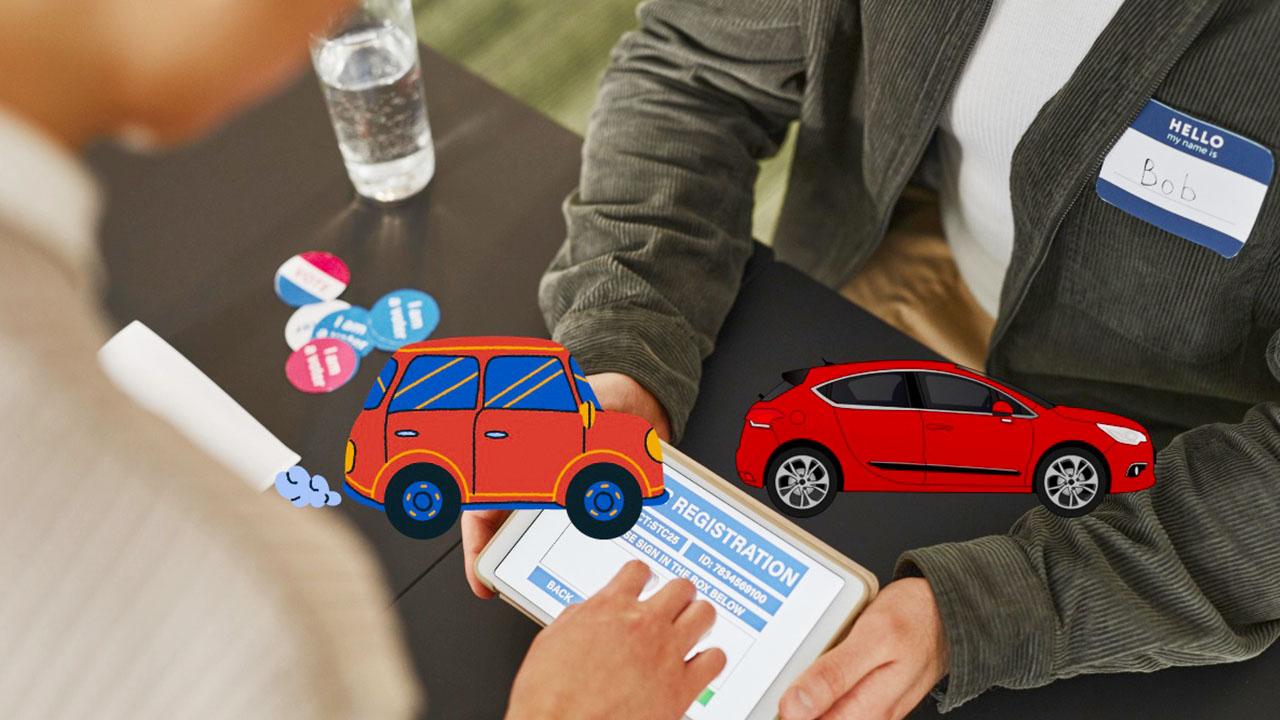
Understanding coverage options
In Vietnam, having adequate car insurance is not just advisable but necessary given the unique driving conditions. Familiarizing oneself with available insurance options helps in choosing a policy that balances coverage cost with comprehensiveness, ensuring protection against mishaps on the road.
Core insurance types include:
- Civil Liability Insurance: Mandatory for all, covering third-party damages.
- Comprehensive Coverage: Extends protection to your vehicle beyond basic policies.
- Personal Accident Insurance: Protects against injury, covering medical expenses.
These coverage options must be assessed, balancing cost against benefit and selecting which aspects of coverage feel most relevant to an individual’s travel context. Whether it’s comprehensive coverage for peace of mind or a minimalist approach, opting for sufficient insurance ensures protection against potential financial prescribes.
Recommendations for insurance providers
Selecting the right insurance provider is as crucial as understanding the coverage options themselves. Recognizable companies like Bao Viet Insurance Corporation, PVI, and Military Insurance Corporation are notable for their exemplary service standards and reputability.
Bao Viet leads with their diverse offerings, catering to unique travel needs and ensuring every traveler feels safe and secure. PVI, sharing similar respectability, delivers tailored policies suitable for both domestic and expatriate needs, while Military Insurance Corporation remains a top choice for its competitive pricing and robust service history.
Recommended Providers:
- Bao Viet Insurance Corporation: Comprehensive options, extensive network.
- PVI: Tailored policies for different traveler profiles.
- Military Insurance Corporation: Competitive pricing, excellent service reputation.
Partnering with one of these trusted providers guarantees transparency and reliability, enhancing confidence and adding ease to the overall rental experience. Each day on the road, knowing that insurance needs are met, reassures and allows focus to remain on the journey itself.
FAQs
- Can I rent a car without an International Driving Permit in Vietnam?
- No, an International Driving Permit is required in conjunction with your home country license for legal driving in Vietnam.
- What is the minimum age to rent a car in Vietnam?
- Generally, the minimum age is 21, but some agencies may require you to be 23 or older.
- Is fuel cost included in the car rental fees?
- Fuel is usually not included in rental fees, so you should plan for additional costs of $1 to $1.50 per liter.
- What should I check for in a rental agreement?
- Ensure you understand mileage limits, insurance coverage, and any additional fees or policies.
- Do I need specific insurance for my car rental in Vietnam?
- Basic insurance is typically included, but additional coverage is advisable for comprehensive protection.
Key Takeaways
- Renting a car offers flexibility and freedom in exploring Vietnam.
- Self-drive rentals demand familiarity with local traffic and legalities.
- Cars with drivers ensure comfort and access to local insights.
- Be aware of additional costs like fuel and insurance.
- Anticipate challenges like Vietnamese traffic and driving laws.
Đông Phong Transport – Car rental in Hanoi, Vietnam
| Phone/Zalo: | 094 858 58 16 |
| Email: | info@dongphongtransport.com |
| Fanpage: | XeDichVuDongPhong |
| Office: | No. 28, Lane 91 Tran Duy Hung, Cau Giay, Hanoi. |
Conclusion
Renting a car in Vietnam transforms the way travelers experience the country, bestowing unparalleled freedom and flexibility. While challenges exist, such experiences offer depth and immersions beyond what structured tours can provide. From the bustling streets of Ho Chi Minh City to the serene landscapes of rural Vietnam, each journey becomes a chapter in your personal travel narrative. Whether selecting a rental with a driver for ease or venturing out independently with a self-drive vehicle, planning and understanding rental requirements, costs, and legalities are pivotal in crafting a rewarding and enriched journey. Making informed choices enhances your experience and ensures that each moment on Vietnam’s vibrant roads is cherished.






